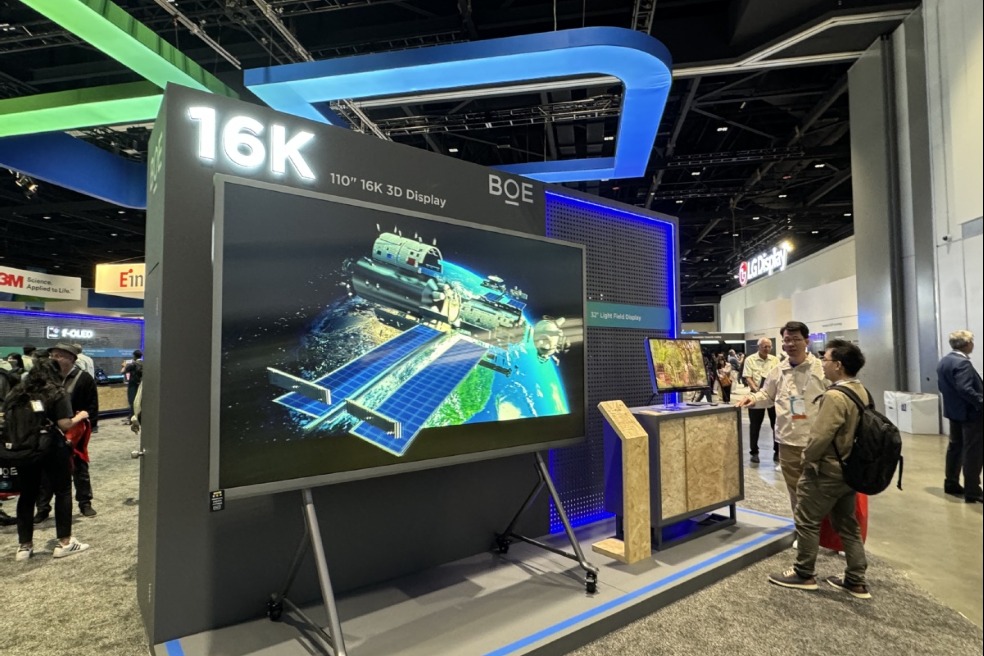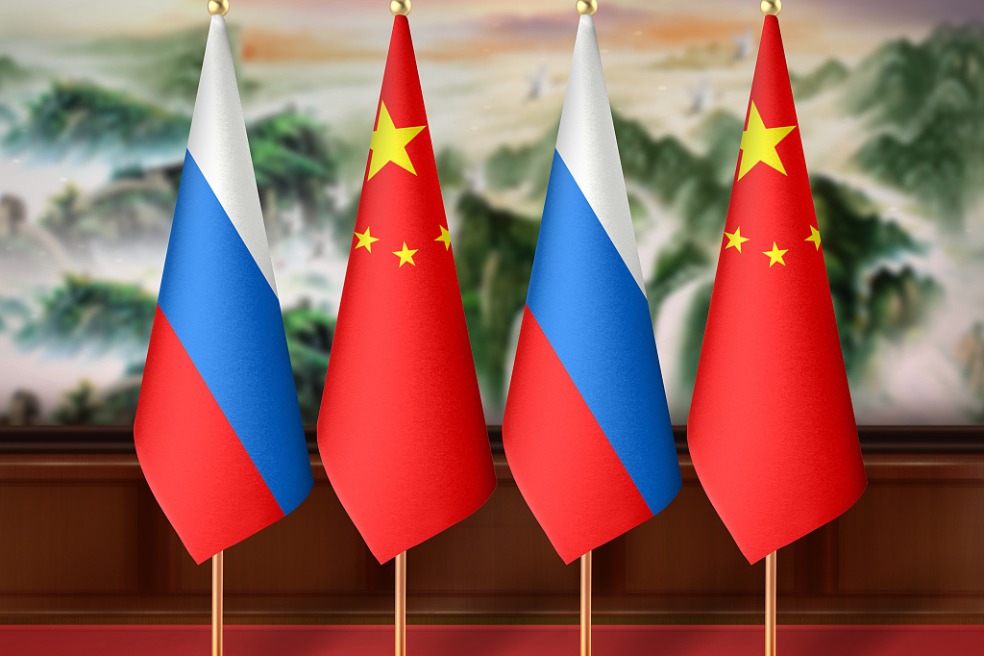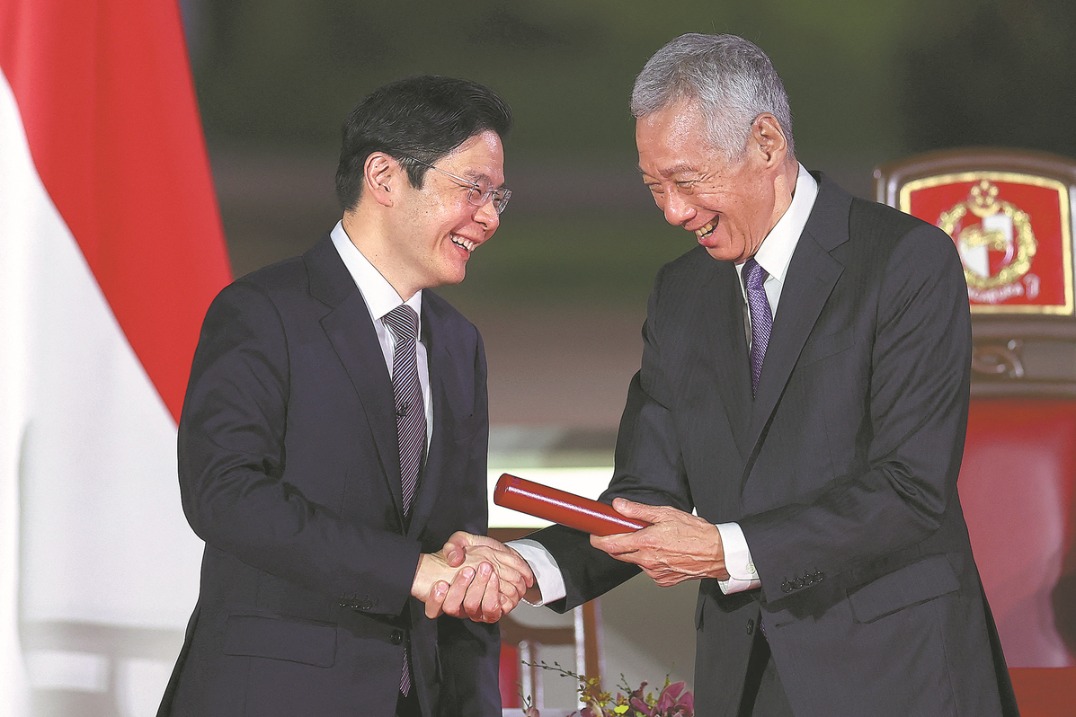Why the JCPoA demands European initiative
By Hannan Hussain | CGTN | Updated: 2021-02-02 15:43
Editor's note: Hannan Hussain is a foreign affairs commentator and author. He is a Fulbright recipient at the University of Maryland, the US, and a former assistant researcher at the Islamabad Policy Research Institute. The article reflects the author's opinions and not necessarily the views of CGTN.
In one of his first moves as the new US envoy for Iran, Robert Malley – chief architect of the 2015 Iran nuclear deal – reached out to the foreign ministry political directors of top European allies, in a bid to synthesize Washington's nuclear track re-initiation with Europe's informed assessment of Tehran. The Biden team insists Malley enjoys the full weight of "negotiating constraints on Iran's nuclear program" successfully in the past, but his prior tact in incentivizing nuclear diplomacy with Tehran under Obama owed a lion's share of credit to European foresight.
It is against this backdrop that the role of the EU/E3 – Germany, United Kingdom and France – is more critical than ever to managing perceptions of escalatory nuclear behavior on both sides, especially as both Washington and Tehran operate on their own expedited timelines for consideration of Joint Comprehensive Plan of Action (JCPOA) without clearly defined contours of "full compliance."
During the period that the US withdrew from the nuclear pact, the E3 maintained its urgency to rescue the agreement's "Joint Commission" diplomacy, approaching the Iran nuclear dossier beyond the reductive lens of broad-based sanctions.
The approach finds its modern equivalent in the forthcoming E3-US nuclear dialogue on JCPOA, aligned with the bedrock principle of US sanctions "being lifted" and "no new ones being imposed" to break diplomatic ground. Through E3-US strategic engagement, allied powers are better positioned to filter nonnuclear instruments of confrontation from the nuclear contours of engaging with Iran.
E3 occupies crucial middle-ground, having retained communication lines with Tehran in the lead-up to its controversial uranium enrichment exercise, cultivated proximity with the US and delivered pushback when necessary against Iranian resistance to legitimate UN inspection. Taken together, the European trio is clear about which action points may best serve the interests of a JCPoA recourse.
In terms of the E3's nuclear diplomacy, this combination of proximity and pushback is important two-way leverage. Consider the fact that the Biden administration is operating on the assumption that Iran's return to nuclear deal compliance would somehow compensate for Washington's own legal breach. "We would like to reestablish some of the parameters and constraints around their program that have fallen away over the course of the past few years," said Jake Sullivan, the White House national security adviser, at an event last week.
Integrating European council can help explain part of how US exceptionalism to the deal is widening fissures within Tehran's political ranks.
For one, Iranian lawmakers – as a counterweight to US posturing – have mustered their own sense of entitlement to nuclear program expansion, as long as the Biden administration keeps punching above its weight on conditioning US return. Second, the E3's commitment to global nuclear non-proliferation architecture is without compromise on the International Atomic Energy Agency's (IAEA) inspection of Iranian nuclear sites. The E3 distinguishes its line of critique from that of Washington by arguing how limited IAEA accessibility threatens Iran's "preservation" of the nuclear deal, as opposed to shifting the onus of complete JCPoA compliance singlehandedly on Tehran.
Note that this is not the popular rationale in Washington at present. Iran's anticipated recourse to the deal – once US sanctions are lifted – remains untested at the official level. It is also unclear whether harsh economic penalties on Iran have made any discernible difference to Washington's promotion of global nuclear non-proliferation architecture.
The E3, albeit with modest success, has communicated its separation of economic and nuclear interests to Iran, maintaining credibility through sanction-protected economic mechanisms such as INSTEX (Instrument in Support of Trade Exchanges).
As a result, if the Biden administration intermixes nuclear determinants of opposition to Iran with other nonnuclear contours (sanctions, terrorism support and geopolitics), it risks operating just above the surface of Trump's maximum pressure calculus.
From a US perspective, limited strategic consultation with Europe also has a severe downside – it gives Iran more on the nuclear program expansion front. Iran's drastic uranium enrichment margins may prove difficult to reverse, despite Tehran's best guarantees, if US re-entry into the JCPoA is more belated than desirable. The timing of Washington's JCPoA recourse will therefore have a central say in the scale of nuclear escalation risks that the E3 – along with the original JCPoA signatories – must grapple with.
Should Biden's European allies consider such diplomatic toil to be far beyond what they could manage, Biden could finally pivot towards a viable alternative on JCPoA: rethink current course and proceed with the first step on compliance.
























